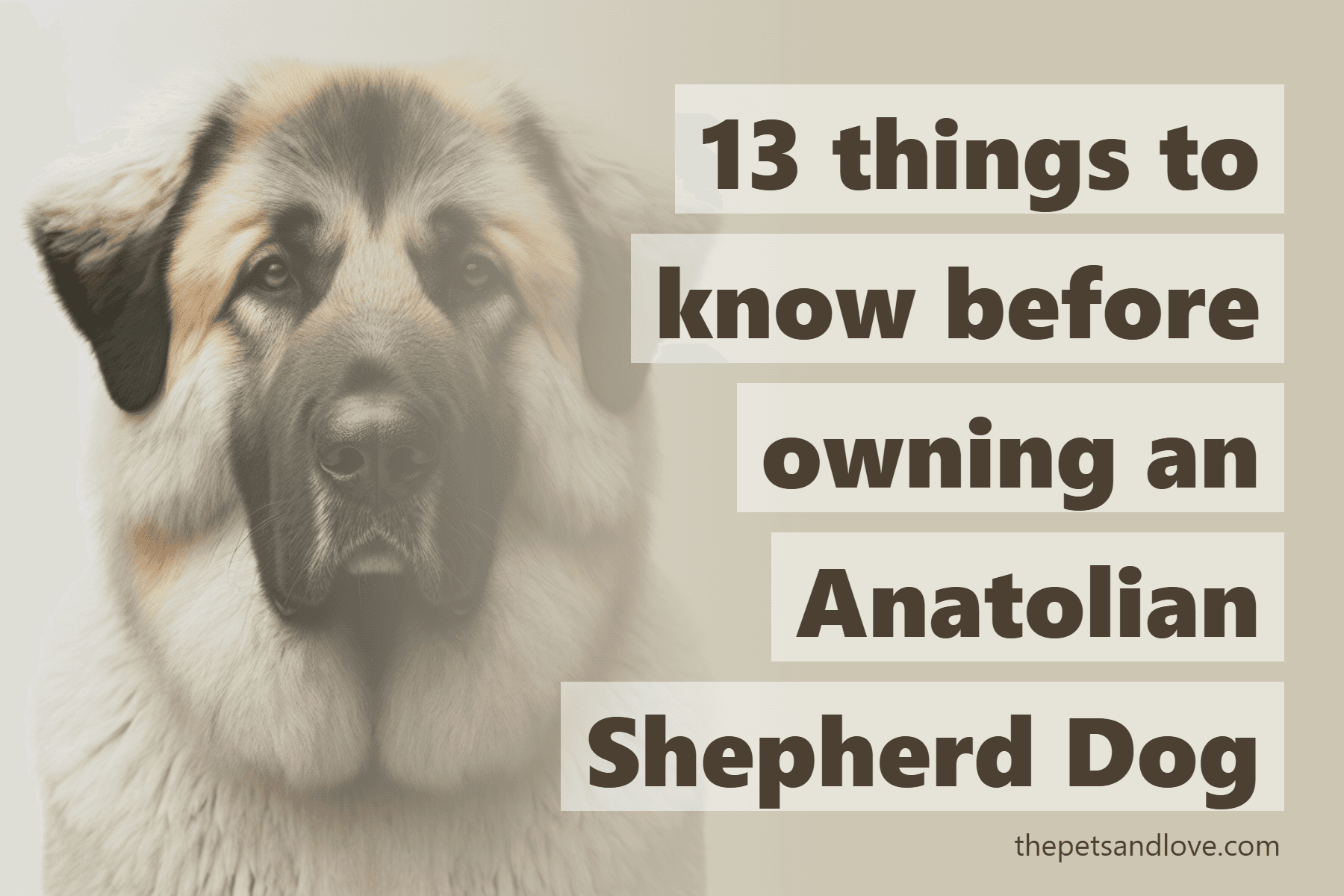13 things to know before owning an Anatolian Shepherd Dog

Thinking about bringing home an Anatolian Shepherd? These dogs are impressive — loyal, bold, and built for protection. But let me tell you from experience: they’re definitely not your average family pet, and they’re not the best pick for first-time dog owners.
Here’s what you really need to know if you're considering life with an Anatolian.
1. They’re Born Protectors — and They Take That Job Seriously
Anatolian Shepherds have guarded livestock in Turkey for centuries. They’re independent thinkers who don’t wait for direction. They decide what’s a threat and act quickly — sometimes too quickly if not properly trained.
They see their family — human or animal — as their flock. If that sounds sweet, it is. But it also means they can be suspicious of strangers and overly protective, especially without proper socialization.
2. Early Training and Socialization Are Non-Negotiable
Start training and socializing your Anatolian early. I’m talking as soon as you bring them home. Introduce them to people, kids, sounds, other pets — anything they might encounter in daily life. They need to learn what’s normal and what’s not.
And don’t expect a people-pleaser. These dogs are very smart but also very independent. They don’t blindly follow commands — they think for themselves. That’s part of what makes them such good guardians, but it also makes them a challenge to train. You’ll need to be patient, consistent, and confident.
If you’ve never trained a large, strong-willed breed before, work with a professional trainer who has experience with guardian dogs.
3. Not Ideal for Homes With Young Kids
Even the gentlest Anatolian can knock over a toddler without meaning to. Plus, they might misread loud play as a threat and try to "protect" the child from their playmates. It’s not aggression — it’s instinct. But it can be risky.
If you have little kids, this probably isn't the breed for you. Teenagers? Maybe. But supervision is still key.
4. Space and Fences Matter
This isn’t a dog you can keep cooped up. Anatolians need room to roam and a job to do. If they’re bored or under-stimulated, they’ll bark, dig, chew — and trust me, a bored Anatolian can destroy a couch in no time.
You’ll need a large, securely fenced yard — six feet high at minimum. Don’t even think about chaining them or leaving them isolated outside. They need regular interaction and mental stimulation, even if they’re not super cuddly.
5. Grooming and Health
Good news: grooming is easy. Their short coat doesn’t tangle, but they do shed — a lot, especially seasonally. So get ready to brush more often during shedding season.
Like all big breeds, they’re prone to hip and elbow dysplasia, hypothyroidism, and a few other genetic conditions. Regular vet checkups and a good diet tailored to large breeds are essential.
6. Exercise and Mental Stimulation Are a Must
At least an hour a day of solid exercise. That could be a long walk, structured playtime, or even cart-pulling or advanced obedience work. They’re not fetch-and-frisbee types, but they do enjoy having a task.
Dog parks? Not a great idea. These dogs don’t appreciate unknown dogs in their space, and they might view them as a threat.
7. Training Requires a Gentle, Firm Hand
Anatolians are sensitive. Harsh corrections will backfire. Use positive reinforcement — treats, praise, and patience. They respond best when they trust and respect you.
8. They’re Not Social Butterflies
Even a well-socialized Anatolian is likely to be aloof with strangers. That’s just who they are. But with their family, they’re calm, loyal, and loving — in their own serious, no-nonsense way.
9. Big Chewers, Big Barkers
Puppies especially will chew everything in sight. Keep them supervised and crated when you can’t watch them. As adults, they calm down, but still need outlets for their energy.
And yes — they bark. Loudly. Especially at night. If you live in a quiet neighborhood with thin walls, your neighbors might not be fans.
Bottom line? Anatolian Shepherds are incredible dogs — if you know what you’re getting into. They’re built to protect, not to entertain. If you want a dog who greets every guest with tail wags, this isn’t the breed for you.
But if you have the space, time, and experience to handle a serious working dog with a heart of gold (for their people), the Anatolian Shepherd can be a fiercely loyal companion. Just don’t expect them to be your average lapdog — they’ve got bigger responsibilities in mind.
